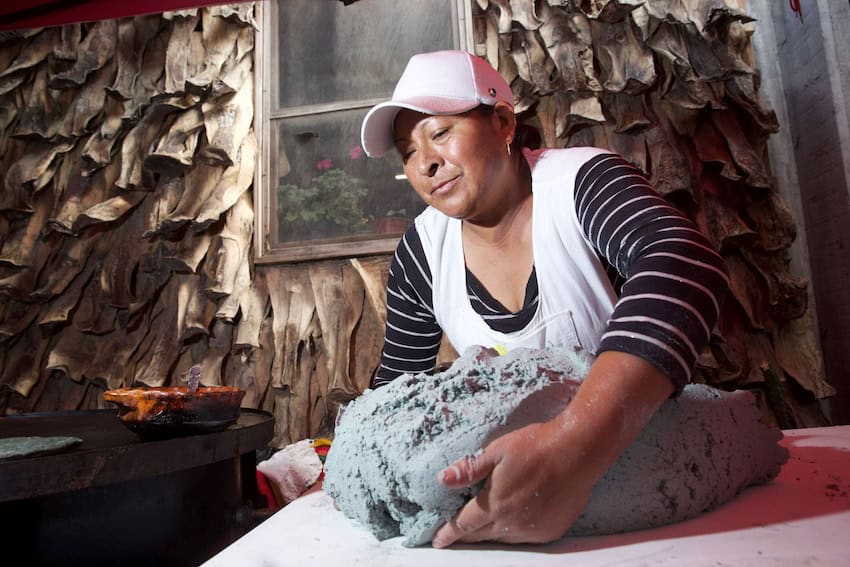The idea of a traditional family, where the husband is the provider and the wife stays at home with the kids, is increasingly changing in Mexico.
While low-income mothers have been historically forced to work to provide for their families, in middle and upper-class Mexican society, a woman was not expected to work once she became a mother. And if she did work, she would either be regarded with sympathy for not having a husband that could provide for her, or judged for leaving her kids at daycare when she didn’t need to.

And this was just a few years ago.
A personal experience of Mexican motherhood
I grew up in that environment and went to an all-girls Catholic private school where only a handful of my classmates’ mothers worked. My mom was amongst that minority, working in the family business and encouraging us to go on to professional careers.
In school, we were taught that we could be anything we liked. Some of the teachers were even other students’ moms. But at the same time, whether from school or society, we would receive another message: once you become a mother, you should prioritize motherhood and wifely duties over a career.
It took some time for this perspective to change. Today, it is now acceptable for women in well off families to choose to either work or stay at home — both honorable and respectable choices. And those who choose to work are now less judged (though let’s face it, a working mom will always receive some amount of judgment anywhere in the world).
What is working life like for mothers in Mexico?
The increasing incorporation of Mexican mothers in the work field is seen in the latest report from the National Occupation and Employment Survey (ENOE) carried out by the National Institute of Geography and Statistics (INEGI). The survey shows that until 2023, more than 70% of women in the workforce in Mexico were mothers.
This means that 17 million women in the workforce have at least one child.
Meanwhile, a 2023 survey by job search platform OCCM found that more than 90% of registered companies employ mothers. In 29% of those companies, more than half of their staff were moms.
Other indicators that show the acceptance of mothers in the workplace include the increasing number of mothers in leadership positions. Just take a look at this year’s election — the two front-runner candidates are mothers. The head of Tesla in México, Teresa Guitérrez Smith, is the mother of four children.

These examples reflect how the perception of working mothers has changed into a more acceptable idea amongst Mexican families.
While we should celebrate the change of perspective towards being a working mom in Mexico, working mothers still face numerous challenges.
In its survey, INEGI found that of the total of mothers in the workforce, 3.3 million (19%) work more than 48 hours a week. The survey also revealed that the biggest challenge for most respondents was finding a work-life balance.
These are not the only issues working mothers currently face however:
Lifestyle
In Mexico, life is still designed for families where the father is the sole provider, and the mother looks after the kids.
For instance, kids’ birthday parties are all during the weekday — usually from 4 to 7 p.m. Mothers are expected take their children to the parties, not the fathers. Weekend mornings are usually destined for first communions, to which mothers are also expected to take the kids unless the invitation explicitly invites fathers.
School meetings also happen during the working week during working hours. Festivals, parent-teacher meetings and other events, all take place mid-morning.
Domestic chores
On top of that, women carry most of the responsibility of chores at home.

A 2022 INEGI survey found that overall, working moms spend 76.8 hours of their week between work, household chores and caring for a member of their family (young or old). This figure is almost nine more hours than men.
Childcare
Access to affordable daycare is also a significant challenge.
According to the OCC, about 40% of mothers get help from a family member, 23% leave their children in daycare or school, and only 15% have the support of their partner to share the responsibility. Another 10% hire someone to babysit their children, and 15% say they have no support.
Maternity leave in Mexico
Maternity leave is a major issue for working mothers and requires urgent addressing.
The current standard of 12 weeks of paid leave falls short of the 14 weeks recommended by the International Labor Organization. According to OCCM, 17% of surveyed mothers said their employers didn’t comply with this period. As a result, they were required to work during their maternity leave or to return to work before it ended.

To address this, Congress has reformed the Social Security Law (IMSS). The law now allows mothers to move up to four of the six weeks of their leave prior to childbirth to after the birth. However, this measure is insufficient to relieve pressure from working mothers and to provide much needed bonding time with their newborns.
As a society, we have made progress in eliminating the stigma of being a working mother. However, there are still challenges to overcome. On one hand, employers and policymakers should collaborate to provide more flexible working hours, affordable childcare, and longer maternity leave. On the other hand, partners should take on more household responsibilities and society should shift towards a lifestyle that acknowledges working mothers.
Gabriela Solis is a Mexican lawyer turned full-time writer. She was born and raised in Guadalajara and covers business, culture, lifestyle and travel for Mexico News Daily. You can follow her lifestyle blog Dunas y Palmeras.
